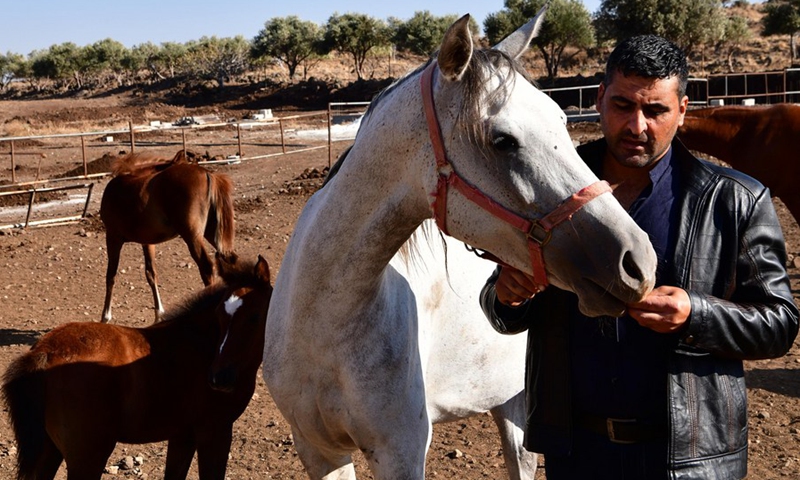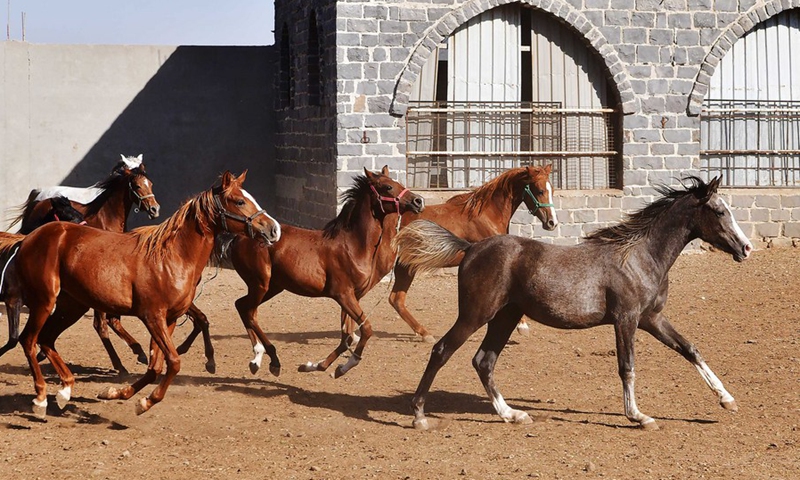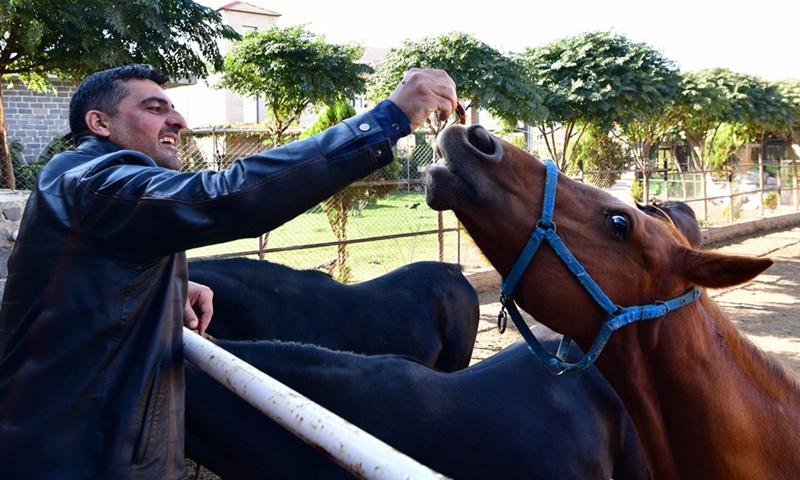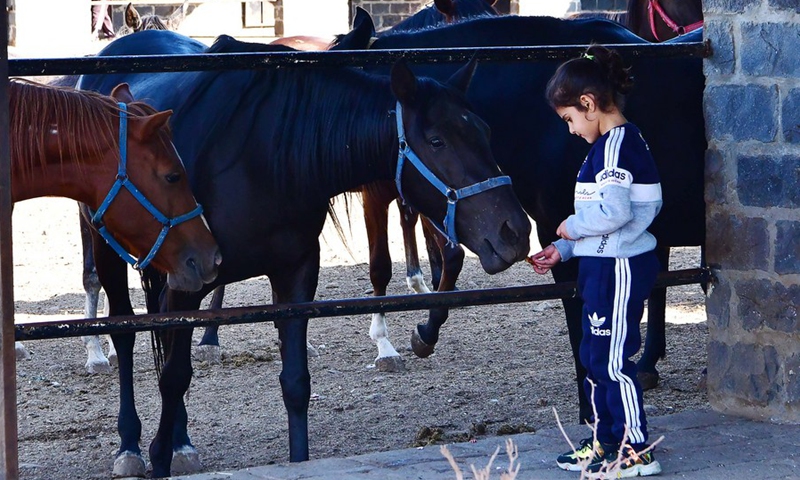
Jafar takes care of horses at a farm in the central province of Homs, Syria, on Nov. 11, 2021.(Photo: Xinhua)

Horses run at a farm in the central province of Homs, Syria, on Nov. 11, 2021.(Photo: Xinhua)

Jafar takes care of horses at a farm in the central province of Homs, Syria, on Nov. 11, 2021.(Photo: Xinhua)

A little girl feeds a horse at a farm in the central province of Homs, Syria, on Nov. 11, 2021.(Photo: Xinhua)
Maen Jafar has been struggling to preserve the Arabian purebred horses his family has been raising during the decade-long war in Syria.
At his farm in the countryside of the central province of Homs, Jafar is proud of having 55 horses, as the Arabian horses, one of the oldest horse breeds in the world, are precious for their beauty, endurance, and speed.
He takes care of the horses along with his brothers and cousins at the sprawling farm, where the horses can run freely without limitation.
Speaking to Xinhua, Jafar said during the war they had to move the horses from one place to another to keep them safe from getting killed or stolen.
"We preserve the horses because it represents the passion of our ancestors and ours as well, so we love to carry on with this cause despite all difficulties," he said.
The middle-aged man pointed out that the Western sanctions imposed on Syria are hindering the import and export of horses and the access of necessary vaccines.
"We lack some vaccines, and the prices of feed are so high that we had to sell some horses," he lamented.
Before the crisis, raisers used to export horses to other countries that valued the purity of the Syrian horses' bloodlines.
During the years of the Syrian war, the breeding of purebred Arabian horses was severely hit, especially with the rebel groups controlling large areas of the country and stealing thousands of purebred horses from private and public farms in the countryside of Hama, Damascus, and Aleppo provinces.
The rebel groups had also smuggled a large number of the best horses across the border to Turkey and other countries, where they were sold at low prices.
Ghiath al-Shayeb, former director of the Arabian Horse Office in Syria, told Xinhua that during the first five years of the war, Syria had lost about 3,000 horses.
With the help of the Syrian authorities, some of the horses were retrieved, particularly after the Syrian army seized many areas in the country.
Between 2014 and 2020, al-Shayeb registered as many as 5,000 new horses, which helped drive up the number of horses in Syria to its pre-war level.
Al-Shayeb noted that one of the main difficulties facing the horse raisers is the high cost of feed, which is forcing them to sell some of their horses at cheaper prices.
He added that the lack of horse export, which is blocked by the Western sanctions, has undermined the horse raisers' ability to take good care of the horses, as the exports used to give them a good income.
Al-Shayeb hoped that horse contests and shows could return in Syria as the security situation has become better.
